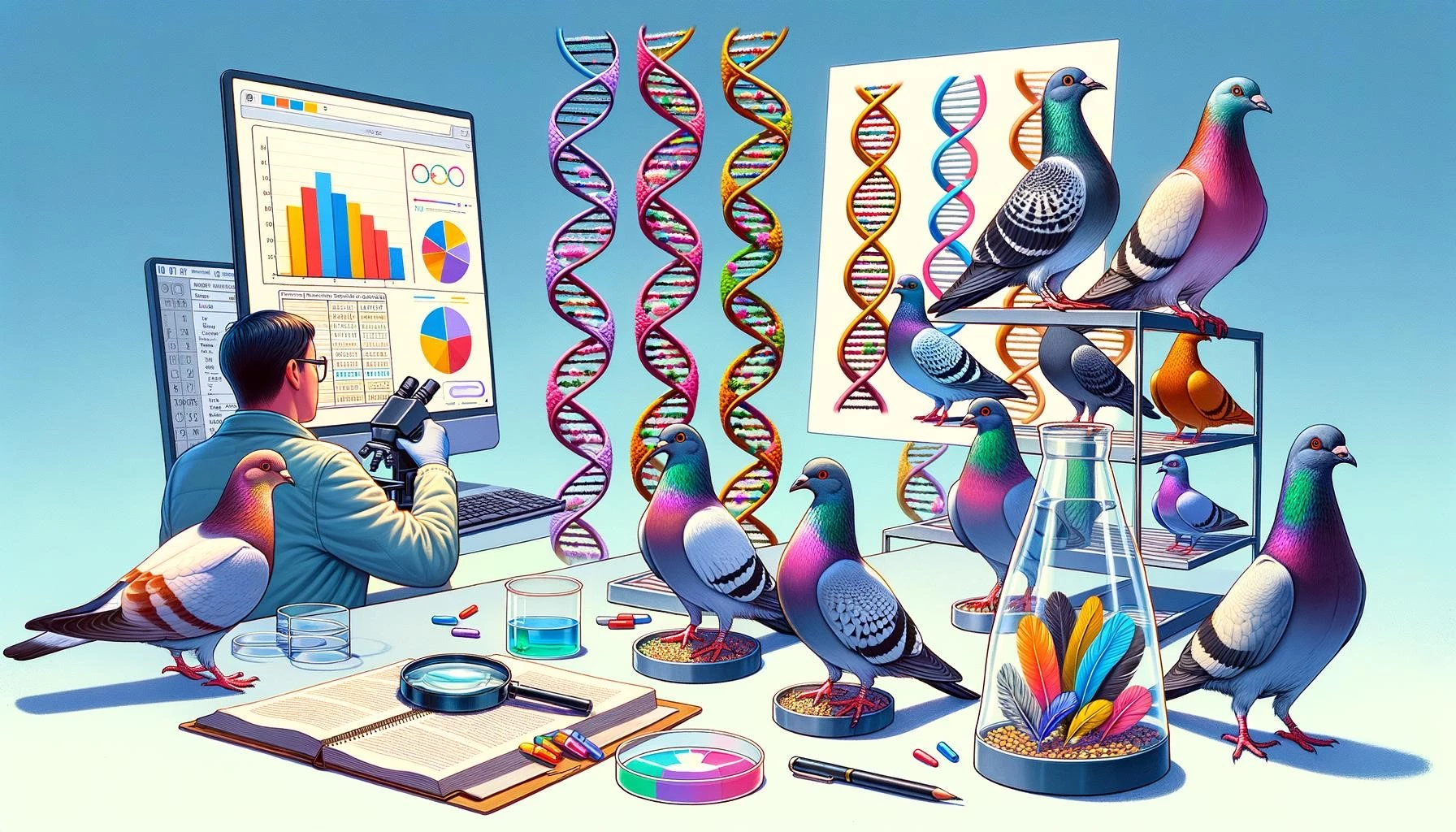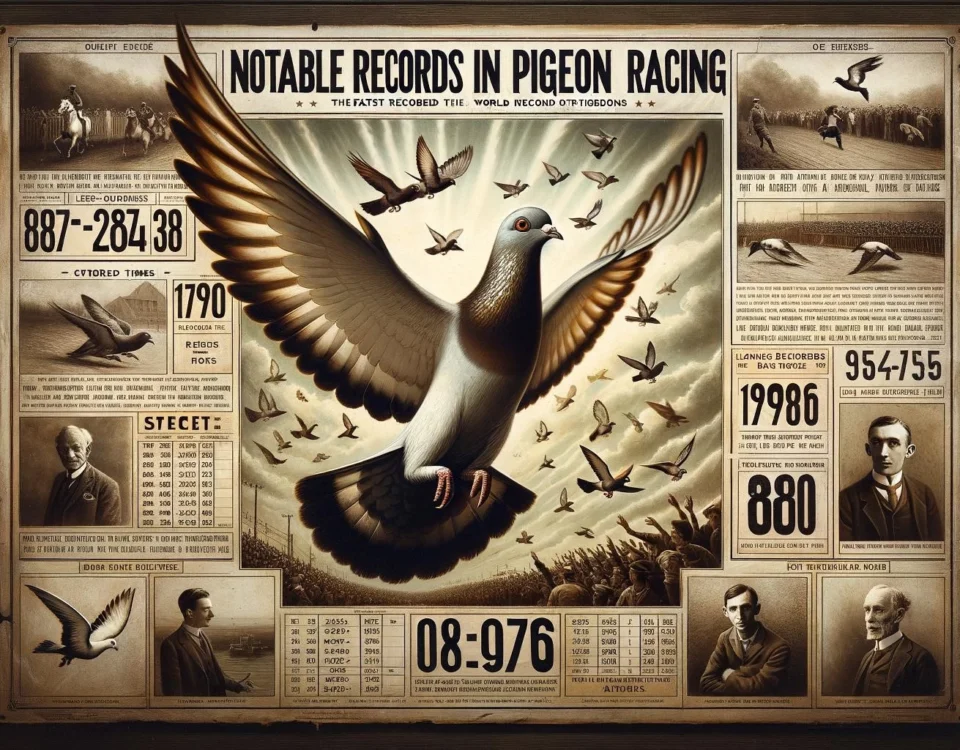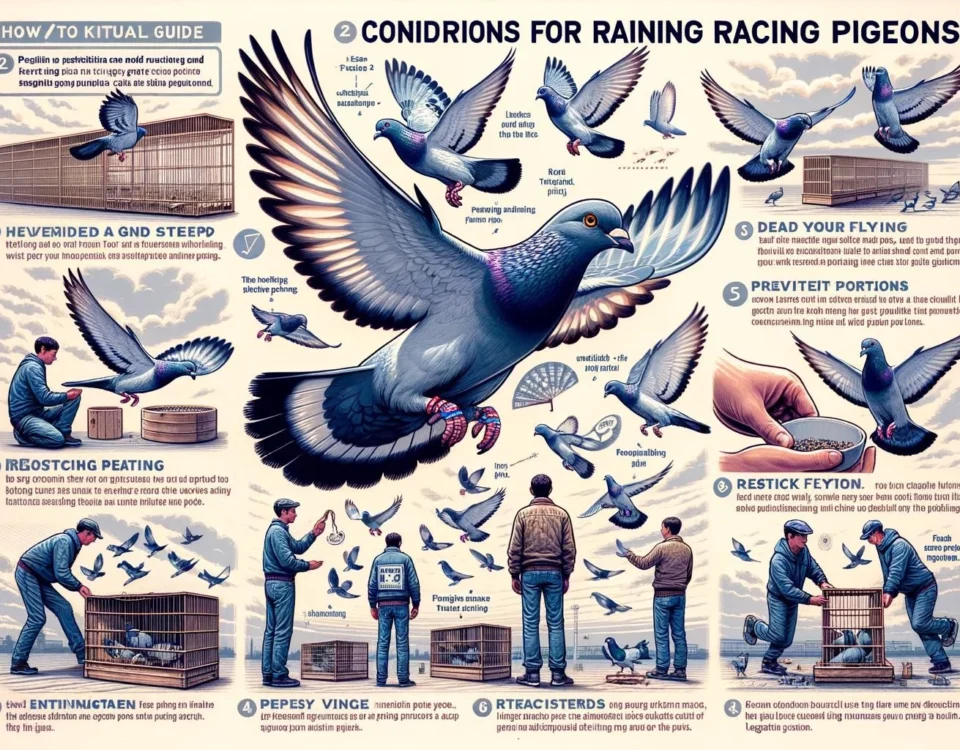Racing pigeons have been bred and trained to excel in the sport of pigeon racing. These athletes of the air possess exceptional flight abilities, speed, and endurance. Behind their remarkable performance lies a significant influence of genetics. Inherited traits, genetic disorders, and selective breeding all play a role in determining the lifespan and racing prowess of these birds.
Key Takeaways
- Racing pigeons are bred and trained to excel in the sport of pigeon racing, possessing exceptional flight abilities, speed, and endurance.
- Genetics play a significant role in determining the lifespan and racing performance of pigeons.
- Inherited traits, genetic disorders, and selective breeding all contribute to the overall genetic makeup of racing pigeons.
The Role of Genetics in Pigeon Lifespan
Genetics play a significant role in determining the lifespan of pigeons, including racing pigeons. Just like other living organisms, pigeon lifespan is influenced by inherited traits and genetic disorders. Selective breeding has also led to the development of racing pigeons with longer lifespans. It is crucial for breeders to understand the genetic makeup of their pigeons to ensure healthy breeding and successful racing performance.
Genetic Diversity and Performance
A study conducted on racing pigeons aimed to investigate the impact of genotype profiles on race performance. The study focused on identifying genetic markers and traits associated with racing performance, such as lactate dehydrogenase A gene (LDHA) and other genes related to performance physiology. The research revealed that certain gene variations are biologically significant and may contribute to the ability of racing pigeons to excel in their sport.
Furthermore, genetic diversity has also been studied in racing pigeons. It was observed that racing pigeons are genetically mixed, regardless of their place of origin. This genetic diversity may have implications for their performance and adaptability to different racing conditions. Understanding and preserving genetic diversity can potentially enhance the overall performance and resilience of racing pigeon populations.
Selective Breeding and Genetic Improvement
Selective breeding is a crucial aspect of racing pigeon breeding programs. Breeders aim to enhance specific traits and characteristics, such as speed, stamina, and homing abilities, through targeted mating and genetic selection. Understanding the genetic basis of these desirable traits allows breeders to make informed decisions and improve the overall quality of their racing pigeons.
Through the use of genetic testing and evaluation, breeders can identify genetic markers associated with racing performance and use this information to inform their breeding strategies. Genetic markers such as LDHA, DRD4, MSTN, F-KER, and mtDNA have been studied for their potential influence on race performance in racing pigeons.
Additionally, understanding the patterns of inheritance and genetic variation among different wing patterns, such as bar, barless, check, or t-check, contributes to the selective breeding process. Breeders can manipulate the genetic variations responsible for these wing patterns to create desired traits and patterns in their racing pigeon populations.
In conclusion, genetics play a significant role in the lifespan, performance, and overall genetic diversity of racing pigeons. Through selective breeding and the identification of genetic markers, breeders can improve the quality and performance of their racing pigeon populations. Understanding the genetic aspects of racing pigeon breeding is crucial for success in the sport and the preservation of desirable traits.









